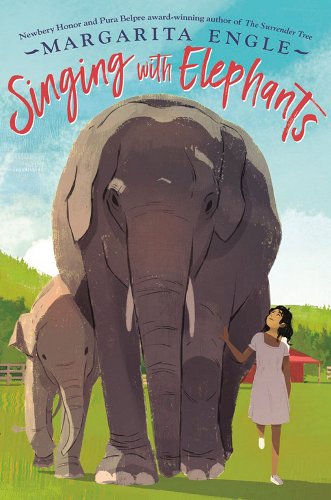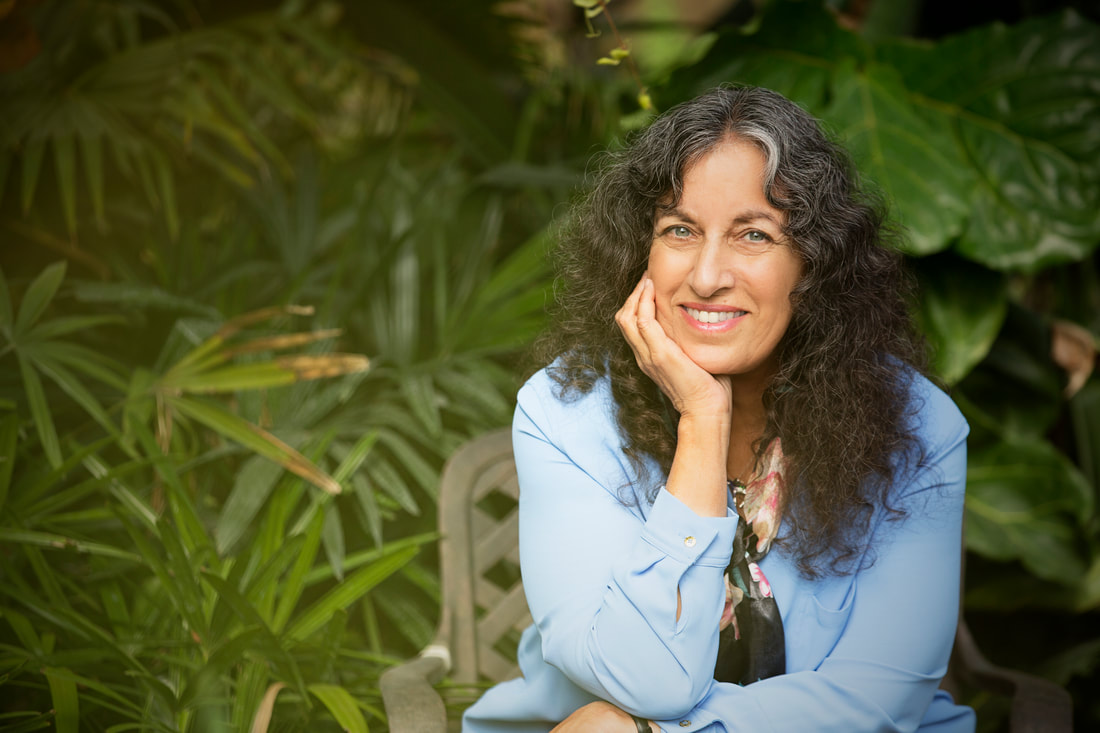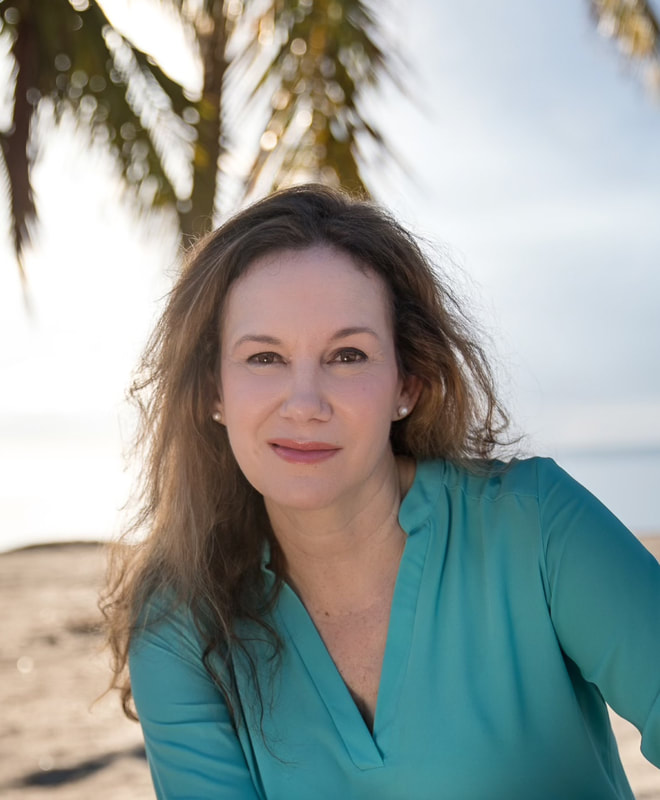|
A big Las Musas book birthday shout-out to Newbery Honor and Pura Belpré Award-winning author, Margarita Engle, on the release of her latest middle-grade verse novel, Singing with Elephants! Musa S.A. Rodriguez interviews Margarita Engle, but first, here are some highlights of this magical book, which Kirkus Reviews called, “Brilliant, joyful, and deeply moving,” in a starred review. A powerful novel in verse about the friendship between a young girl and the poet Gabriela Mistral that leads to healing and hope for both of them.
S.A. Rodriguez: Congratulations on the release of your latest novel! You have accumulated many prestigious awards throughout your career, including the Newbery Honor for your book, The Surrender Tree. I’m sure Singing with Elephants will be received with equal acclaim. It’s simply beautiful! Can you tell us a bit about the inspiration behind this story? Margarita Engle: Thank you! When I learned that Gabriela Mistral lived in Santa Barbara after World War II, I was fascinated. It was close to the time when my teenage mother arrived in California from Cuba in 1948. I began to imagine how a child might be influenced by Mistral’s devotion to poetry, education, peacemaking, and nature. Mistral was the first Latin American recipient of a Nobel Prize for Literature, and to this day she is still the only Latin American woman recipient. She was also a diplomat, and one of the founders of the United Nations and UNICEF. She was a peacemaker. She wrote poems and songs for children, and her children’s story The Elephant and His Secret is about peacemaking. I hope to help make young readers aware of her importance. She is an amazing role model for young poets. S.A. Rodriguez: An amazing role model indeed! In the novel, Gabriela Mistral serves as a source of inspiration and a teacher to Oriol. Did she serve as a muse to you when you were a young girl, or is there another poet (or poets) who inspired you? Margarita Engle: I wrote poetry when I was little, inspired by José Martí verses that my mother recited, but I didn’t have a mentor until graduate school, when Tomás Rivera taught me to write from the heart, without worrying about getting published or being popular. It’s a lesson that helps me feel free of self-criticism, the worst enemy of any poet. Like Mistral, Rivera was an amazing role model. His childhood was spent as a migrant farmworker, but he worked his way up to become the first Latinx Chancellor of a University of California campus. He told me that no matter how many academic honors he received, he still felt like a poet at heart. S.A Rodriguez: “Write from the heart,” is great advice! There’s certainly a lot of heart in your story. I also noticed love and humane treatment of animals is an important thread throughout this novel. I found it interesting that in the Author’s Note, you mention your experience visiting a wildlife ranch near Santa Barbara, and even befriending an elephant. Can you tell us about this experience and how it helped shape the story? Margarita Engle: When I was little, we visited a ranch where animals were trained for movies, but I didn’t become friends with an elephant until I was a young mother working for an irrigation water conservation project near San Diego. Carol painted pictures with her trunk, played soccer with human friends, and made me feel welcome in her enclosure. However, at that time, in the 1990s, mahouts still used metal hooks to discipline and even punish elephants. Today, zoos have abandoned that practice. People and elephants are separated by fences that allow them to interact without any need for cruelty. S.A Rodriguez: Getting to know Carol sounds like an amazing experience. As a reader and an animal lover myself, I enjoyed learning such detailed information about the behavior of elephants. It seems they can mirror human emotions in their deep-rooted love for family. How did you go about learning so much about elephants? Margarita Engle: I did a lot of research about elephants. Their loyalty and love for each other is a reminder that we are not the only intelligent and emotional creatures on Earth. We need to make room for other species in our ideas about heroes. S.A Rodriguez: Yes, I agree. Animals can be heroes, too. Switching gears, I love how you integrate your Cuban roots and the lyrical dance on your pages between English and Spanish words. You write, “Let us mix our languages together like emotions that swirl and blend in a pot of paint...” I think this serves as an inspiration for all of us Latinx artists to proudly display our culture and language and put it front and center in our works. How have you seen Latinx representation evolving in the publishing industry throughout your career? Margarita Engle: ¡Gracias! The transformation of Latinx representation in children’s literature has been astounding. Grassroots organizations like We Need Diverse Books, Las Musas, and #DiverseVerse are really making a difference. I’m profoundly grateful for the increased availability of Spanish and bilingual editions of books, as well as the wider variety of styles---including verse novels. However, if people don’t buy the Spanish editions, that aspect of publishing might be regarded as a failure. We need to encourage teachers, parents, and librarians to support this positive trend. S.A Rodriguez: ¡Así es! Libros en español and bilingual editions are very important. Digging a little deeper, another thing I admired about your novel is how you portray the immigrant experience. I could relate to the sense of loss you describe when we must leave the place we consider “home” and how “echoes of the place where we used to live,” as you so eloquently put it, continue to shape our identity. Did you pull from a personal well to convey the raw and powerful emotions that jump off your pages? Margarita Engle: My mother was extremely homesick when I was little. Even now, at the age of 91, she speaks of Cuba with longing, but she has not returned since 1960. Sometimes she says that’s because she doesn’t want to see it changed, and sometimes she admits that she stays away because she knows she can never take big enough gifts to help relatives as much as they need. I developed my own personal love of Cuba during childhood visits, but as soon as it became possible to visit again after travel restrictions loosened a bit, I started going back. I can’t take big enough gifts either, but I think it means a lot to relatives just knowing they haven’t been forgotten. S.A Rodriguez: So many Latinos and immigrants go through this emotional turmoil when we migrate to America. No es fácil. What’s next for you? Are there any projects in the works that you can share with us? Margarita Engle: My next two young adult verse novels are love stories with environmental themes, similar to Your Heart, My Sky, but in a more contemporary setting. The glorious Gabi D’Alessandro cover of Wings in the Wild will be revealed on June 10 by Simon and Schuster. My next few picture books include a nonfiction book about a rescued sloth in Costa Rica (National Geographic Books), a story about the joy of water delivery day in a Cuban neighborhood without a regular supply (Atheneum), and a collection of poems about Cuban women artists (Reycraft Books). S.A. Rodriguez: You’re quite busy! These sound like wonderful projects. Environmental themes are so important. Wrapping up, you’ve had such a successful career as a Latina creator—a pioneer as a children’s verse novelist—and have helped forge a path for all of us. Are there any lessons learned you can share with us? Margarita Engle: Thank you. I think young authors are often impatient, but rejections and delays are just part of the process. We can all benefit from perseverance. If you don’t get that first story published, think of it as practice, not a failure. No dancer, musician, or actor would perform on stage without rehearsing. It’s the same for writers. Unpublished work is valuable in its own way. We learn from the experience. We need to follow Tomás Rivera’s advice and write from the heart, without worrying about getting published or being popular. We write because we have something to say. We write no matter how long it takes to find the right agent, editor, and readers. One of those readers might turn out to be the next Musa. S.A. Rodriguez: This is wonderful advice, and I agree that it takes a lot of perseverance to succeed. It’s been a pleasure learning more about Singing with Elephants and gaining valuable insights into your creative process. Thank you for sharing with us! Buy Singing with Elephants today!
0 Comments
Leave a Reply. |
Las Musas SpeakWelcome to our blog! Archives
July 2024
Categories
All
|




 RSS Feed
RSS Feed